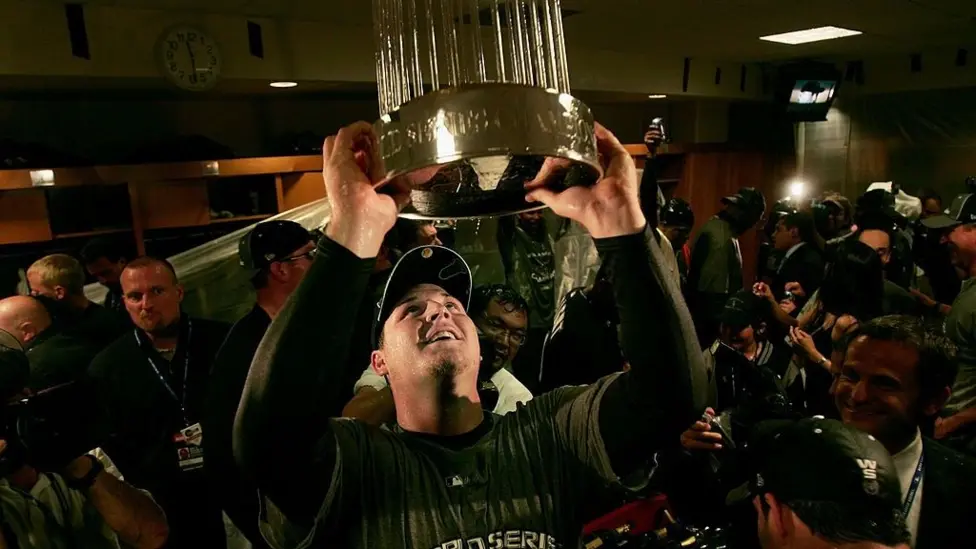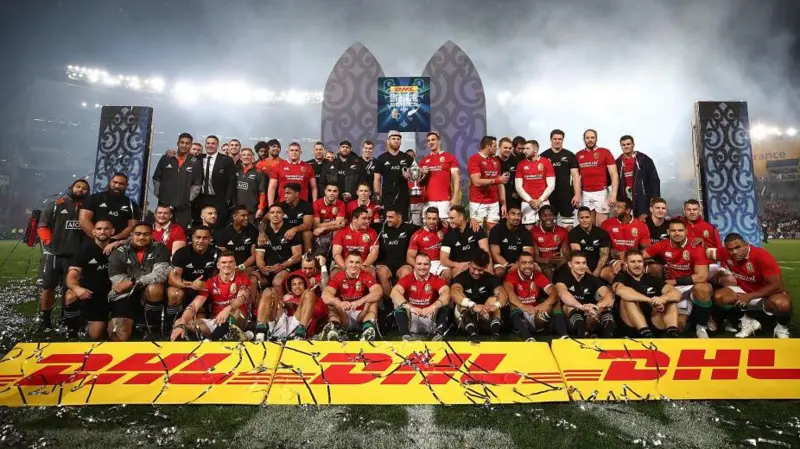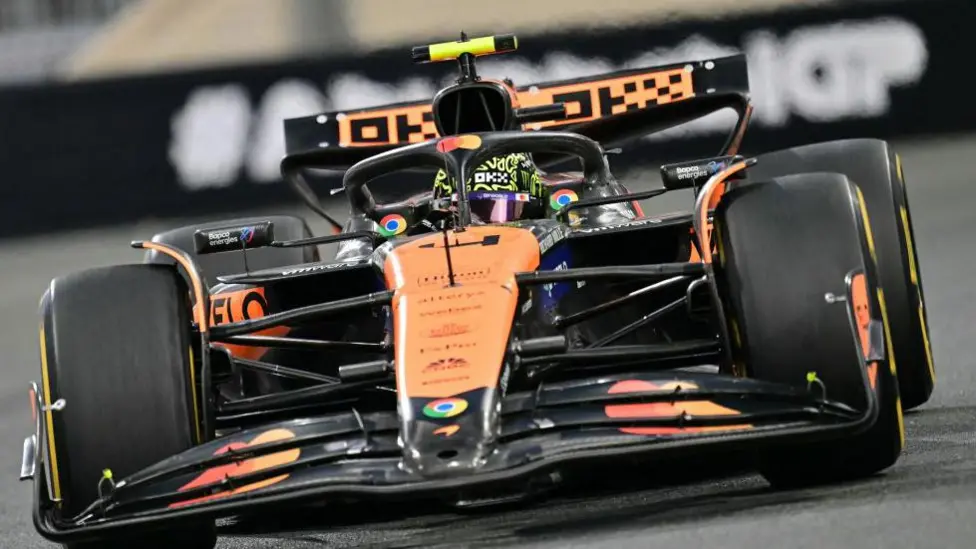Indian workers exempt from tax that increased in budget under new trade deal
Downing Street has said it won't bow to pressure from senior Labour figures to change course despite last week's elections drubbing. In more positive news for the prime minister, a free trade deal has been struck with India - but that's not gone down well with everyone, either.

Tories accuse government of giving India 'massive subsidy' to secure trade deal
Responding to the trade minister's statement, Tory counterpart Harriet Baldwin asked the government why it did not mention that Indian workers will be exempt from national insurance contributions (NICs) in its trade deal announcement.
It was high up in the Indian government's version of the trade deal news release, as you'd expect.
The shadow development minister said the exemption - which will be in place for three years - will come at "significant cost to the British taxpayer and British businesses".
She also asked if it will apply retroactively to Indian workers who are already here, and whether it amounted to a "massive subsidy" just to get the long awaited trade deal over the line.
The Tories also want to know the cost of the scheme and how many visas will be made available - some of which has since been addressed by the business secretary (see previous post).
People 'getting carried away' over Indian worker exemption, says business secretary
People are getting "carried away" talking about an exemption that means British companies won't have to pay national insurance contributions (NICs) for Indian workers.
The business secretary has said this exemption will only apply to a "specific" type of worker, under the new UK-India trade deal.
Jonathan Reynolds said the exemption, called a double contributions convention, is something the UK already has with plenty of other countries and blocs - including the EU.
He added these rules are about ensuring smooth "transfers" so people don't pay social security in multiple places.
No NICs, no benefits
He said: "I think some people are getting a little bit carried away as to what this actually means.
"It means that when our people are moved by a company to India they will be paying into the UK system and not the Indian system, and when Indian people are temporarily in the UK they'll be paying into their system and not to ours.
"But it's very specific as to who this applies to and obviously if people were in the UK they would still be paying income tax, the health surcharge, and they wouldn't be eligible for benefits from the national insurance system."
Lib Dems to vote against government's trade deal with India
The Liberal Democrats have given their second reaction to the UK's new trade deal with India.
Earlier, this afternoon, Sir Ed Davey called for there to be a vote on the free trade agreement. It's now been confirmed by the government that this will happen.
Now Davey is back for more, and has warned the deal contains "half-baked" national insurance plans.
This is a reference to the so-called double contribution convention, which will mean UK businesses employing Indian workers on short-term visas in the UK will not need to pay national insurance contributions (NICs).
It effectively means a UK company would find hiring a British employee more expensive than recruiting an Indian worker.
British workers 'already being hammered'
The Lib Dem Treasury spokesperson Daisy Cooper MP, said: "This deal risks undercutting British workers at a time when they're already being hammered by Trump's trade war and Labour's misguided jobs tax."
That "jobs tax" is a reference to the increase in national NICs in last October's budget, which came into force a month ago.
"We cannot vote for any trade deal that undercuts British workers in this way," Cooper added.
'A huge boost': How UK-India trade deal is going down with businesses
Reaction to the UK's new trade deal with India has been coming from businesses and industry bodies thick and fast.
The Law Society, which represents solicitors in England and Wales, has said the decision to not include legal services in the deal means the government has missed out potentially on "massive economic benefits".
"India is one of the last large jurisdictions in the world in which the establishment of foreign lawyers is not possible, meaning a lot of India-related legal work currently takes place outside of India," it added.
But the British Chambers of Commerce said it was a "huge boost".
William Bain, head of trade policy, said against the "mounting trade uncertainty", the tariff exemptions will be a "big relief".
Policy charity the IPPR described the deal as a "major win" for the PM.
It added the deal shows "even in a tough global economic climate [...] the UK can turn uncertainty into opportunity".
It's also pleased The Food and Drink Federation.
Karen Betts, its CEO, said: "The UK exported nearly £300m worth of food and drink to India in 2024, so this free trade agreement represents a significant opportunity for British food and soft drinks."
Parliament will get a vote on UK-India deal, says trade minister
Douglas Alexander says the government has "succeeded" in securing a deal with India, where previous governments have "failed".
The trade minister has been giving an update to the Commons and said it will "unlock new opportunities for businesses in every part" of the UK, and secure more than £400m in tariff reductions in the first year alone.
Alexander said it will also improve UK wages by £2.2bn each year, while adding nearly £5bn to the country's GDP "in the long run".
He added that the Commons would be able to scrutinize the text of the deal before it is ratified.
"We are proud to back open markets and free trade," he said.
"We believe [these] are a fundamental building block with which the UK can secure its opportunities and its prosperity, at home and abroad."
The devil is in the detail in UK-India trade deal
This agreement has been in the making since January 2022, and has had 14 rounds of talks for its culmination.
But we still have to wait for the finer details of the deal.
Benefits to Indian industry were already available, with more than 60% of total Indian merchandise being duty-free into the UK while the rest attracted low tariffs.
The average tariff on goods imported from Indian into Britain is 4.2%, while the other way around it's an average of 14.6%. But in the case of Scotch whisky it was 150%, and 100% on cars.
It's still not clear what some of the sticky issues that led to the prolonged negotiations were.
Details of visas for Indian IT and health workers, business mobility, and greater access for its students and professionals in the UK market with social security benefits are still to be deciphered.
The "rules of origin", a provision to help contain the dumping of goods, was another thorny issue. India was adamant that the goods from a third country could not be dumped in its market by just putting a label on it.
Automotive tariffs have been reduced from 100% to 10% under a quota, but there's little clarity on how much India would allow Britain's clean energy and manufacturing sectors into its growing market.
India ferociously protects its electric vehicle sectors and encourages its domestic industry through production-linked incentive schemes.
There is also no mention of "carbon tax", which the UK wanted to levy.
But India's labour-intensive sectors like textiles, footwear, gems, and jewellery will surely benefit with lower tariffs.
Badenoch says she 'refused' to sign same deal with India due to tax exemptions
Kemi Badenoch has said she refused to sign the UK-India deal when she was trade secretary due to "two-tier taxes".
The leader of the Conservatives, a former business secretary, said she did not sign a deal with India because the agreement included "tax refunds for Indians not available to us", requests for visas were "too high", and "ceramics and aluminium industries would be screwed".
She concluded: "When Labour negotiates, Britain loses."
The deal has sparked a row for making British companies exempt from paying national insurance contributions (NICs) for Indian employees.
In a nutshell, it will effectively make it cheaper for British companies to employ Indian workers than British ones, due to NICs (which Labour increased in the October budget).
Responding to this criticism, a Labour source claimed the Conservatives offered the same NICs exemption to a wider group of people when they were in government.
They added that the exemption from NICs, called the double contribution convention, is common in UK trade deals and prevents workers from paying social security in multiple countries.
They added that the UK has the convention with the EU, US, Ireland, and more than 60 other countries.
Indian workers in UK exempt from national insurance contributions under trade deal
Indians who are living and working temporarily in the UK will be exempt from paying national insurance contributions (NIC), according to the Indian government's press release about the new trade deal.
It means British companies will not have to pay NICs for Indian workers on short-term visas - though these will still apply for British workers.
Reminder: NICs - often labelled a jobs tax - were increased in the budget last October, to much consternation from businesses.
The exemption has been agreed initially for three years, to make Indian service provers more competitive in the UK.
It's part of what's called the double contribution convention, and was pushed for by India to ensure workers do not make social security contributions in multiple countries.
But it's unclear whether this policy is reciprocal - which would mean Brits in India would also be exempt from making social security payments.
Conservatives: Exemptions mean deal imposes 'two-tier taxes'
Kemi Badenoch and the Conservatives have said it means the deal will lead to "two-tier taxes" with "tax refunds for Indians not available to us".
Badenoch said she would not sign this deal.
Shadow business and trade secretary Andrew Griffith added that the convention means "every time Labour negotiates, Britain loses".
UK-India trade deal sets 'dangerous precedent', warn Lib Dems
The Liberal Democrats have called the UK's new trade deal with India a "good step forward", but warned it could set a "dangerous precedent".
Sir Ed Davey said parliament should have been asked to "properly scrutinise" the deal and been given a vote on it.
Art of the deals…
He's said the same thing about a potential UK-US trade deal.
He has used questions in the last two PMQs sessions to ask Keir Starmer whether parliament will be given oversight of a deal before one is agreed.
Both times, the PM avoided answering the question.
Davey also has a third deal in his sights, though.
He has used today's announcement to reiterate his call for the government to "move quickly" to create a "new UK-EU customs union".
This is the "best and fastest way to grow our economy, boost living standards and send a message to Trump that we won’t take his bullying lying down", Davey added.
Reeves: India trade deal will unlock growth across UK
We've just heard from the chancellor, following the news that the UK and India have signed a free trade deal.
Rachel Reeves has said it will "unlock growth in every corner of the country - from advanced manufacturing in the North East to whisky distilleries in Scotland".
The deal will be welcome news for Reeves, who has often been short of positive headlines after making growth her top priority.
The free trade agreement will see tariffs on 90% of UK imports cut, and 85% of these will become tariff-free within a decade.
The deal includes whisky, gin, vehicles, clothes, cosmetics, and aerospace.
Starmer: A historic day for the UK and India
The prime minister has given his reaction to the UK and India signing a free trade agreement.
Sir Keir Starmer said it was a "historic day" for both countries.
It's the UK's "biggest trade deal" since Brexit and the "most ambitious" India has ever done, he added.
"This will be measured in billions of pounds into our economy and jobs across the whole of the UK," Starmer said.
He said he and Indian PM Narendra Modi discussed the deal in Brazil at the G20 last year and agreed to speed up negotiations.
'Tough negotiations'
Reports suggested the deal dragged on because both countries held elections last year.
There were also hang-ups over immigration numbers and Starmer acknowledged "tough negotiations on both sides".
"But because we were serious and pragmatic, and providing the leadership to our negotiators' teams, we were able to resolve the difficulties that held this up," the PM added.
Reform's first female MP sworn into parliament
Sarah Pochin has been sworn in as Reform's first female MP.
She won the Runcorn and Helsby by-election last week - perhaps the highlight for the party on a day which also saw it take control of 10 councils and two mayoralties.
Speaking with Nigel Farage outside parliament, she told Sky News: "The biggest issues in Runcorn and Helsby are one of complete and utter decline in the town centre in Runcorn, so we need to get some investment in there.
"It has been allowed to become a dumping ground for pollution, for all sorts of issues. So, I'm going to be a strong voice locally for getting some public services back in there.
"I'm going to be straight in there and make the best of it."
-SKY NEWS







